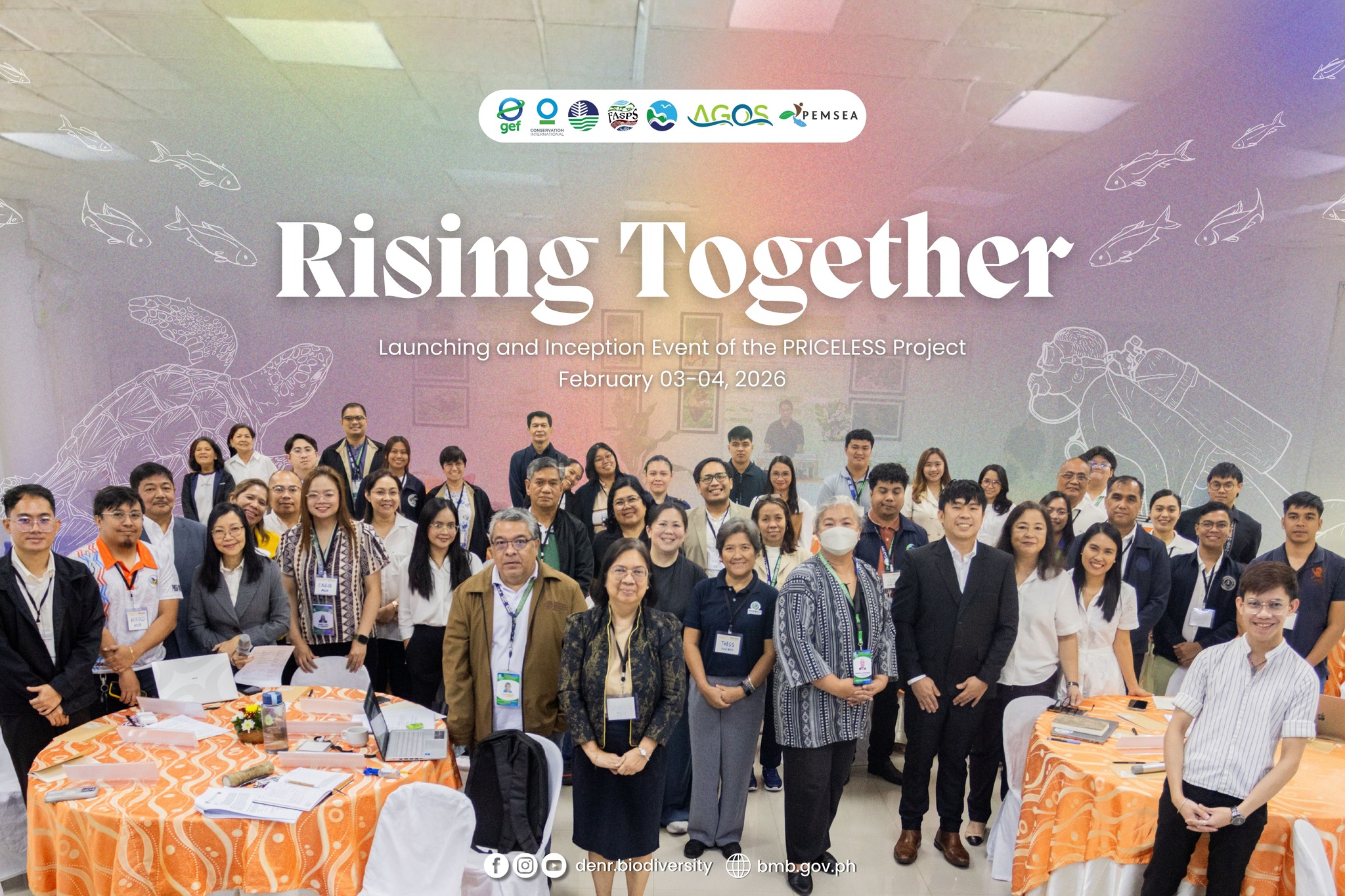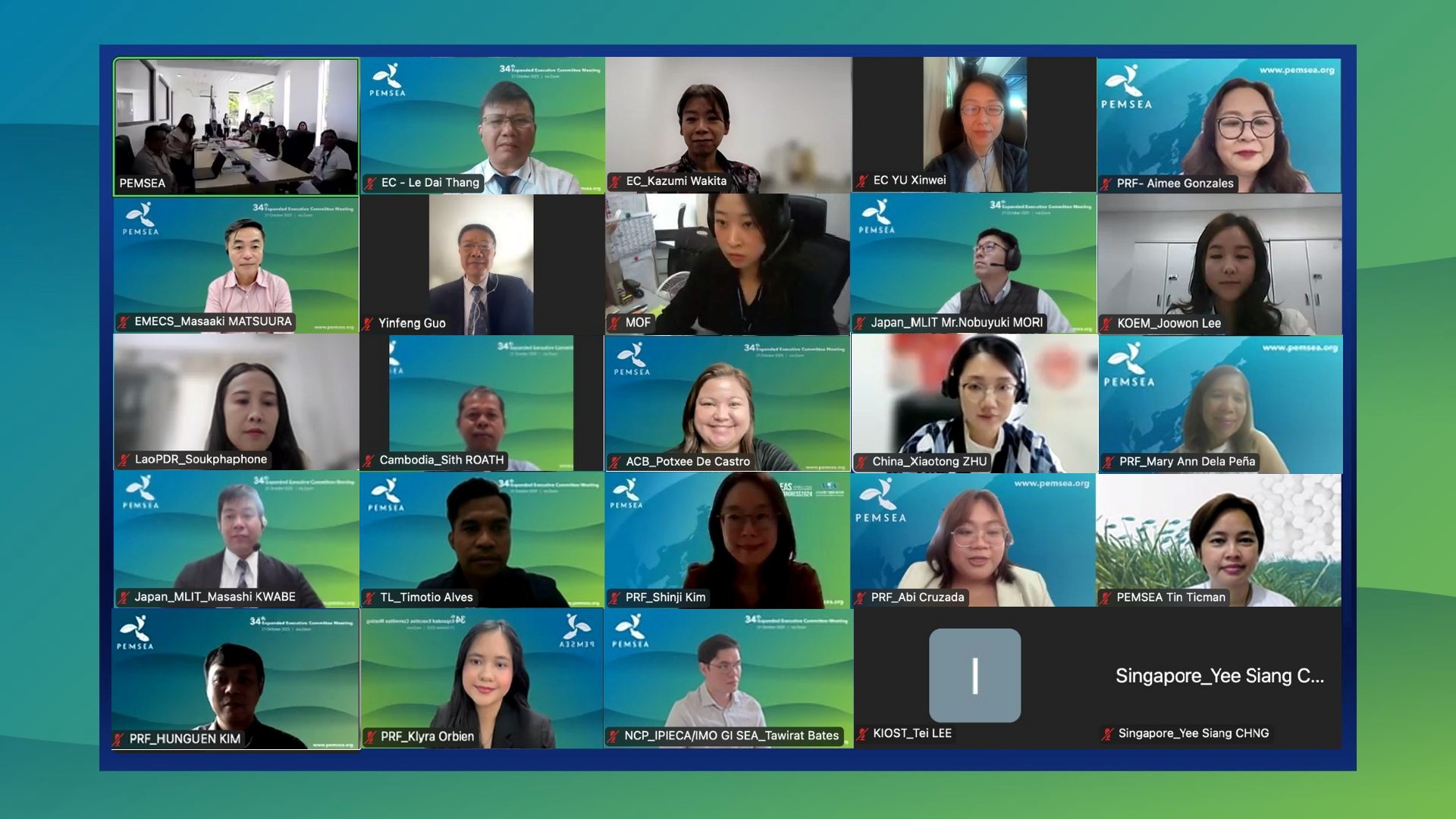PH Mayors Commit to Reduce Marine Plastics, Sign Key Agreements for Pilot Project Roll Out
Friday, 24 October 2025
Manila, Philippines — Philippine mayors and local leaders from five coastal cities and municipalities have pledged to strengthen local actions and solutions to reduce marine plastic pollution, signing a Mayors’ Compact and key project agreements under the MOF/PEMSEA Marine Plastics ODA Project during the Mayors’ Conference on Reducing Marine Plastics held in Manila on 22 October 2025.
The Mayors’ Compact, signed by local leaders from Bulan, Sorsogon; Calbayog City, Samar; Daanbantayan, Cebu; Dipolog City, Zamboanga del Norte; and Tandag City, Surigao del Sur, aims to strengthen the commitment of local governments to innovate and collaborate in improving waste management systems and preventing plastic leakage into the seas.
The conference, organized by the Partnerships in Environmental Management for the Seas of East Asia (PEMSEA) with support from the Republic of Korea, Ministry of Oceans and Fisheries and the Department of Environment and Natural Resources (DENR) of the Philippines, convened local leaders to address the challenges of marine plastic pollution in the Philippines.
The Mayors’ Conference on Reducing Marine Plastics served as a platform for strengthening local collaboration in addressing marine plastic pollution in the Philippines. City and municipal leaders upheld the importance of innovative solutions and key commitments through the signing of the Mayors’ Compact, Memorandum of Understanding, and Letters of Agreement (LOA) between PEMSEA and participating LGUs.
Atty. Jonas Leones, DENR Undersecretary for Policy, Planning and International Affairs urged local leaders to scale up effective practices, fill existing gaps, and work together to protect the country’s marine ecosystems, “This conference is not only a celebration of achievements but also a call to action. We must scale up what works, address the gaps that remain, and continue to collaborate across all levels of governance,” he said.
“Every piece of plastic we prevent from entering our seas protects a fisher’s livelihood, safeguards a community’s food supply, and preserves the beauty and bounty of our marine ecosystems for future generations,” Usec. Leones added.
Aimee Gonzales, Executive Director of the PEMSEA Resource Facility, emphasized the importance of empowering local leaders. “We strongly believe that real change happens locally. Empowered mayors—backed by resources, information, and networks—can make a lasting impact not only in their communities but throughout the region,” she said.
“This is not just a partnership. It is a collaboration of equals, based on mutual respect, mutual support, and mutual ambition.”
DENR Undersecretary Analiza Rebuelta-Teh noted that the local initiatives demonstrate scalable innovation. “From Bulan to Tandag, each pilot site embodies what is possible when leadership, community engagement, and science-based planning come together. These are not just local projects—they are models that demonstrate the Philippines’ resolve to curb plastic pollution at its source,” she said.
Funded by the Republic of Korea through the Ministry of Oceans and Fisheries, and implemented by PEMSEA, the Marine Plastics ODA Project strengthens regional cooperation in addressing the growing threat of marine plastic pollution while supporting the Philippines’ broader commitments to sustainable coastal development.





